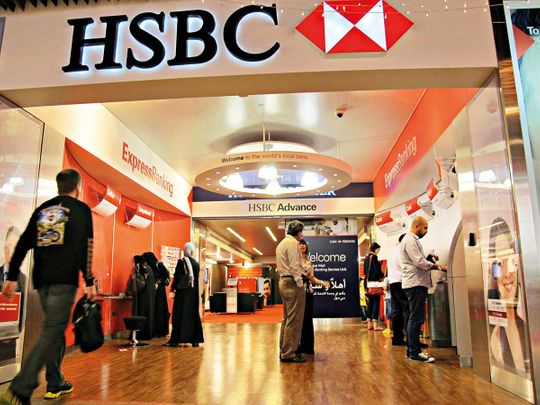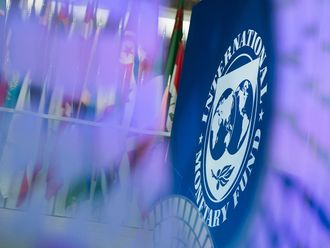
The past months have been brutal for the UK’s retail and consumer industries, and one bank that’s felt its fair share of the pain is HSBC Holdings Plc, which has found itself on the wrong side of several of the highest-profile failures.
Last week, TV celebrity chef Jamie Oliver’s casual-dining chain was placed into protection from creditors. That left Europe’s largest bank sitting on about 30 million pounds ($38 million) of potential losses, according to a person familiar with the situation. Some 22 restaurants were shut, with the likely loss of more than 1,000 jobs.
HSBC is hardly the only lender taking a hit, but it’s one of the few to disclose some of its losses on UK retailers. It was involved in a “disproportionately high share of exposure to the small number of meaningful failures seen over recent months,” according to Investec Plc analyst Ian Gordon.
HSBC loaned money to troubled businesses including House of Fraser, Debenhams Plc and Patisserie Valerie as blows from Brexit to the inexorable march of online commerce rained down on Britain’s central shopping districts, or high streets.
“A number of lenders are facing legacy issues from loans given out during easier times in the UK retail market, and the issues they face with that are becoming more obvious,” said Tony Shiret, a retail analyst at Whitman Howard. “The banks are like the landlords, with both suffering a hangover after the party years.”
A spokeswoman for HSBC declined to comment. In first-quarter results announced this month, HSBC’s sprawling Asian footprint boosted profit, but the bank drew attention to Britain as a particular point of pain. Expected credit losses tripled to $600 million versus a year earlier, driven “by a small number” of mostly British cases, the bank said. HSBC’s global banking and markets unit took a $40 million hit for an expected credit loss in the quarter, “largely related to a single corporate exposure in the U.K.’ that it didn’t identify.
Patisserie Valerie
HSBC was the senior secured lender to Oliver’s restaurant group. It was previously restructured only last year, with the bank’s support, in an effort to get back on a more sustainable footing.
The celebrity chef’s problems pale in comparison to bigger retail failures. When the House of Fraser department stores went into administration in August, HSBC was left with a 400-million-pound claim. Debenhams, another debt-laden department-store chain, was put into administration in April. HSBC severed its ties with the retailer just before then, but that may not have saved it from taking a loss.
Then there’s Patisserie Valerie, which was pushed into insolvency after an accounting scandal. HSBC was one of the bakery chain’s largest lenders, and had provided it with a 2.6-million-pound overdraft facility. It demanded repayment in January, days after Barclays Plc had asked for its own 4-million-pound loan to be repaid.
HSBC is also one of the largest lenders to the retail empire of billionaire businessman Philip Green, who has been restructuring Arcadia Group, the owner of the Topshop brand. On Wednesday, Arcadia said it would close 23 stores, with the loss of 520 jobs.
Green is also seeking a company voluntary arrangement - a mechanism that allows companies to cut their rent bill. Arcadia said it faces “significant liquidity issues” and that earnings and same-store sales had been sliding, and the CVA was necessary to ‘avoid insolvent administration or liquidation.’ Two dozen further stores may close if Green succeeds in pushing through the plan.












